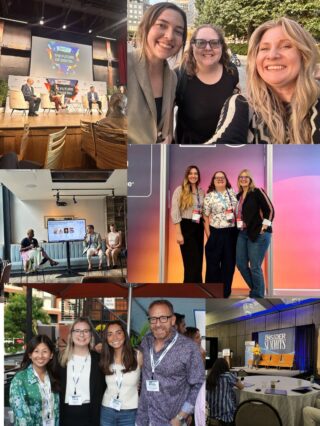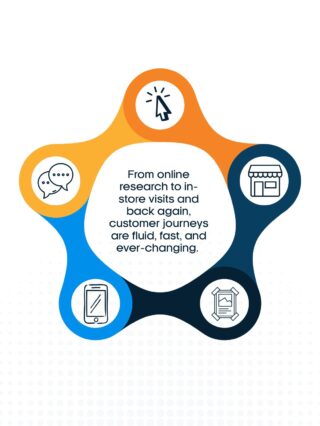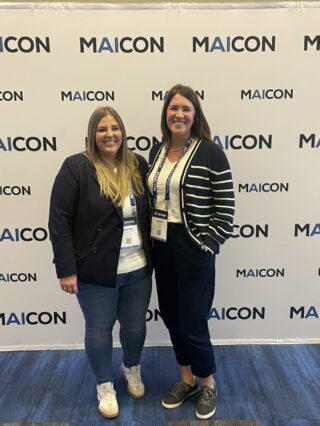Whether you found it entertaining, frightening, or both at the same time, Jeff Orlowski’s informative documentary, “The Social Dilemma,” certainly made us all stop and think: about social media companies, our data, and our kids. But it also made us think about what we think about. Was buying that new sweater or having that opinion really “my idea” or did an algorithm that gets smarter with every click convince me to think this way? As a media agency that cares deeply about intention, we wanted to take this moment to stop and think as well, about the important issues this film raises and our shared responsibility to ensure the tools that connect us never divide us.
Since marketing is our business, the fact that social media companies are collecting our data and tracking our behavior is not news. As Butler/Till’s Digital Media Supervisor, Christine Falcipieri, explains, “Because of what I know about data collection, I am personally very cautious about how I use platforms and the information I openly give.” But even experts can be taken aback when presented with the sheer scale of these efforts and the very real effects they’re having on our society, especially young people. “It resonated close to home as a parent and the responsibility I have to raise my daughter to be a great person with high self-esteem and an appreciation of real, in-person contact and communication,” said Creative Director, Donna VonDerLinn.
So who bears responsibility for curbing these negative effects? The companies themselves? The government? The users? The documentary argues that this answer is not black and white, but it also makes clear that the status quo is not working, particularly as we approach an election clouded by disinformation. “The major tech companies should have total responsibility to ensure that their platforms are not used to spread misinformation and hate speech,“ says Senior Publisher Direct Specialist, Alex Lindroth. “I think a platform like Facebook should feel a moral obligation to weed out misinformation and hate speech,” Falcipieri adds.
But who gets to define “misinformation” and “hate speech?” Do algorithms have morals? “It’s hard to draw a firm line between one person’s view of freedom and another’s hate speech,” explains Agent Experience Consultant, George Heissenberger. “It’s not something you can write a code to detect.” As several subjects of the film suggest, perhaps some form of universal standards might then be required that only government legislation can provide. “Should tech companies police themselves?” asks Copywriter, Matt Kirsch. “I don’t think any company or group is really capable of policing itself, especially if they’re a for-profit endeavor.”
And speaking of intention, where do the users themselves fit into this data loop? Are we trading away some of our information in order to take advantage of the convenience these tools afford us? “Our data is the exchange we pay to utilize the service they are providing,” says Integrated Planner, Lauren Morgan. “I would love to know if there were paid versions of Facebook and Google without advertising or data collection, how many people would participate and at what cost would they be willing to pay for that.” As these platforms become further entrenched in our lives, this “exchange” becomes more and more unconscious. “While watching the film I checked my Instagram, Facebook, and TikTok at least ten times. Even hearing the word ‘Instagram’ triggered me to check my feed and refresh,” Morgan adds.
In the end, the “Social Dilemma” left us with a lot of questions and not a lot of immediate solutions. Perhaps its goal was not to solve this complicated problem, but instead to remind us of our own humanity. Self-awareness is a distinctly human trait and it’s not something we should give up lightly. “I think these bigger tech companies need to start making us feel like we are humans vs. data points to make money,” Agent Experience Consultant, Sarah Corey explains. This is an important lesson that extends to every piece of work we do here at Butler/Till. The data, the spreadsheets, the algorithms, that’s not the work. The human connections these tools help build, that’s the work, and that’s what we value as an agency.





